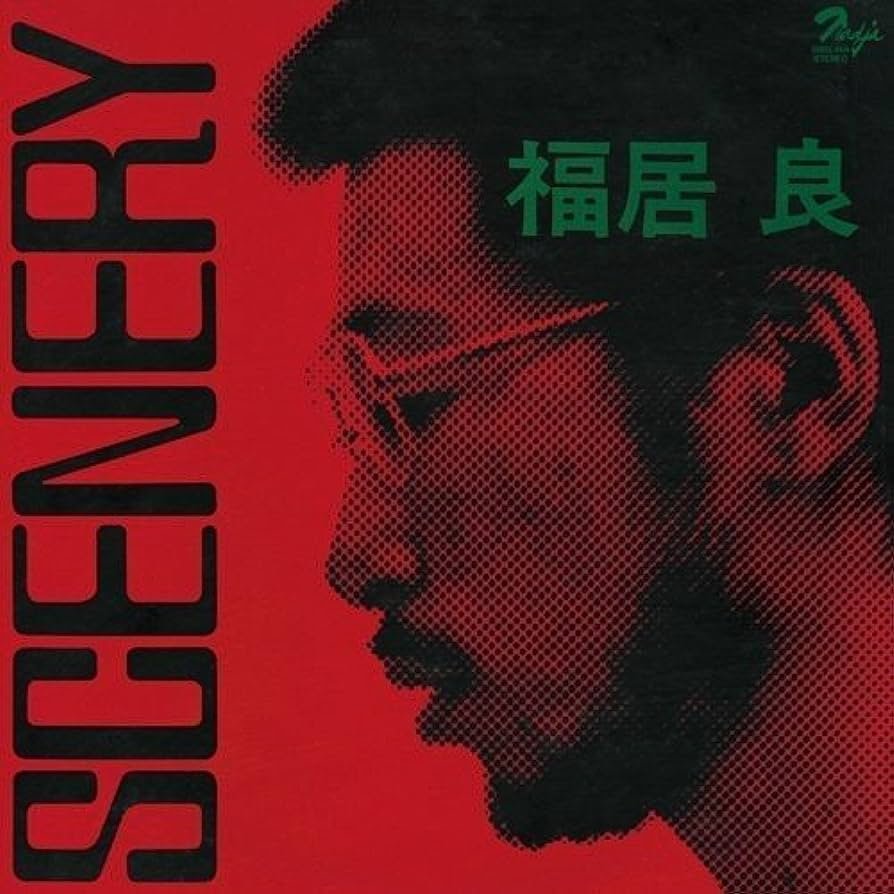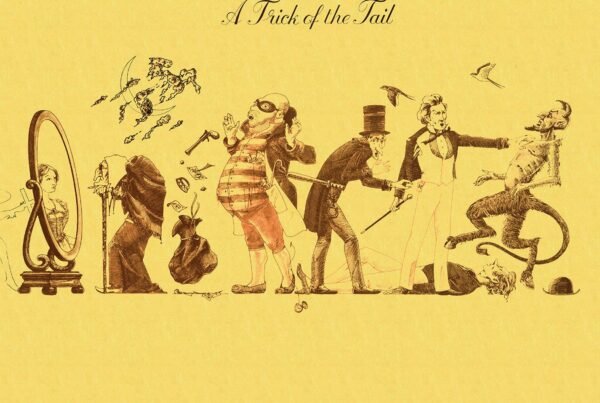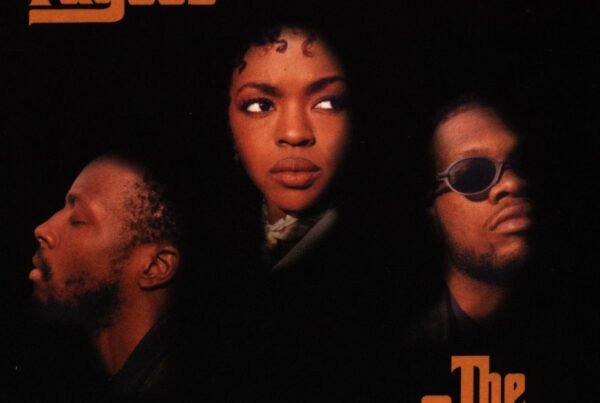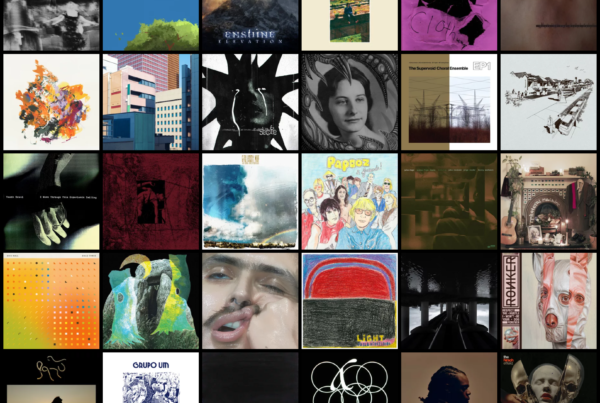Release date: 1976 | Trio Records
Japan has, in many areas of popular culture, this aura of mystique and intrigue to it, despite its exports becoming more and more mainstream over the decades. Its endemic music scene is no exception, producing some of the most sought-after, exhilarating pieces of recorded sound in existence. Before you could just ride the Youtube algorithm into bliss, discovering these nuggets of beauty was a hard task even for dedicated crate-diggers; now, we can all bask in the greatness the land of the rising sun has bestowed upon us time and time again.
1976’s Scenery by pianist Ryo Fukui has become synonymous with that development, its striking red cover etched into our collective retinas forever. While there is no official information on its exact release date, we do know that it was recorded in July 1976, so we thought it best to celebrate its merits this month, 47 years later.
Jake Walters
The decision to celebrate this album has filled me with one of those rare joys. Scenery is more than likely my favorite jazz record, especially jazz which sees piano as the lead instrument. This is also one of those albums that I don’t remember when or how I discovered it, but whatever outlet offered it up to me feels like an instrument of fate. When I heard his rendition of the standard “It Could Happen to You” lead off this record, it became clear that this interpretation of the song could be the definitive version. It is effervescent, airy, hopeful, and with plenty of room between the notes to let the imagination send you on a fairy tale where you’ve won some amazing prize that changes your life forever.
This is a simple album by almost any objective measurement. There are three instruments playing a handful of songs that cover a little over 40 minutes, but within that span, there’s an escape hatch that lets me jettison my cares, my worries, and my surroundings and be absorbed by this trio of burgeoning musicians. Jazz is generally a genre of standards, and it’s the interpretation of those standards that can make or break a reputation or career in some cases. Ryo Fukui started somewhat late in life as a musician and even later behind the keys, and considering that Scenery is his debut record makes this whole thing even more impressive. His dynamics on the keys feel well beyond his years at the time, and this is hardly more evident than on this 10-minute rendition of “Early Summer” that goes from lilting on the keys in the opening moments to the frantic runs and chromatic arpeggios in the up-tempo mid-section. Sure, this is technically impressive, but it’s the feeling that comes from all of this that sets it apart. The explosive drum solo that punctuates the middle third is the wind-up that is needed to set apart the final pummeling on the keys.
Fukui’s take on “Willow Weep for Me” is lounge jazz at its finest. Smoky, cabaret ride cymbals accent the bass notes as the piano tells the tale of loss without words. There’s longing, despair, and a hint of hedonism within this song that feels like a cigar and scotch bender put to music. While it’s perhaps the most cliché-sounding track on the record, I love it for that. It’s what people hear in their head when you say ‘jazz trio’, and it’s the pinnacle of the archetype in many ways. I want to put on a herringbone suit, some fancy tasseled loafers, and watch patrons of this imaginary club get in way over their heads in some life-altering drama. Fukui’s compositional prowess finally gets to shine on the final and title track to close things out, and it’s as lovely as you would imagine. It’s a bit somber and a little pensive, but playful and flirtatious in a way that only jazz can be.
If there’s one thing this album has been to me since it found me, it’s a friend. Whenever I need to pull a blanket of bliss over my head to block out the world, this is a record that I turn to. There’s nothing flashy about what is happening here in some respects. The production is simple, the songs are mostly standards, and the musicianship, while great, isn’t the start. It’s the mood, the pocket, the charm. This set of songs, and Fukui and company’s interpretation and presentation, is as timeless as the genre itself, and I’m so glad that we get to hear this and talk about it today.
Robert Miklos
If I was paid by the number of words I write, I’d probably open with a thousand of them on the magnificence of Japanese jazz; however, I’m not getting paid – at all, so that’s not happening. If you’re not aware of said magnificence, I wholeheartedly recommend delving into this regional niche. So, Scenery? Yeah, alright, let’s dive right in. I won’t be touching much on Ryo Fukui particularly either, I’d rather just stick to selling you on why this record should be remembered almost fifty years later, and why it basically aged like a fine wine.
I’ve heard a lot of opinions taking jabs at the level of technical proficiency lacking, particularly on Fukui’s end, as well as lacking a certain finesse and originality, compositionally speaking. I resent this as pure baseless snobbery in the realm of jazz listeners, as well as something of a cherry-picking type of affair with no regard for context. Let’s take a beat and remember that this album was composed a long time ago in a place that wasn’t yet so heavily drenched in all the flavors and the masters of the genre, never mind that Fukui himself at the time of the release was learning and playing piano for a mere six years. If I recall correctly, neither Satoshi Denpo nor Yoshinori Fukui were virtuoso-level musicians by any metric, maybe far from it.
Sure, Scenery isn’t exactly a record that will dazzle and impress by way of mythical levels of performance and groundbreaking compositions. I don’t think it was ever meant to be something like that. Jazz, much like any other genre, is never always about prowess in that sense; it’s about a lot more than that. Granted, all but the 3rd and the last track, which are Fukui’s interpretations of jazz standards, aren’t probably the finest renditions. Even so, I feel that they are brought to life in a lovely and sunny disposition, which works well with the demeanor of the rest of this brisk record.
I firmly believe that Scenery is one of the most aptly titled records out there, regardless of genre. The reason is quite simple: when I think of scenery as an abstract idea, I summon wide vistas, detailed landscapes, things that tend to be ample in scope and size, difficult to encapsulate in any other medium than witnessing firsthand, bristling with intricate details upon closer inspection. In a less dramatic and cinematic way, this is what Scenery, the album, does, as I see it.
Everything about this record is basically a meditation on relaxation, sunny days, and taking a breather. We’re met with a plenitude of laid-back grooves, rolling on and on effortlessly, not unlike forested hills rolling into one another for miles on end. Nothing is ever too crowded for more than a few instants at a time. It’s as if you’re accidentally staring right into the blazing sun for a few seconds and having that short-lived stun before returning to normal as you avert your gaze.
What really cements the attitude and demeanor of the record are the melodies, particularly on the original compositions, “Early Summer” and “Scenery”. They spring to life with a uniquely vivacious edge, often peppered with some spicy and resonant chord progressions, really driving home a sense of storytelling that’s difficult to quantify in words; maybe it’s best likened to a variety of scapes. The intimate piano trio layout with a hard pan on drums and bass, respectively, with plenty of space between, gives us an effervescent yet well-grounded setting for all the pellucid qualities present, further acting as a catalyst for all the melodic content.
“Early Summer” and “Scenery” are easily my favorite moments off of this record, and that comes to me with little to no surprise. I only wish the record would’ve been entirely comprised of other personal creations akin to these. Although, its layout in this sense makes sense given the time of its release.
In terms of Scenery becoming an indispensable staple of jazz, skirting along the lines of post-bop, modal jazz, straight-ahead jazz, and cool jazz, it’s difficult to appraise how it earned this spot. I’m not versed enough in the history of jazz to debate this, and I’m content with its spot in the genre’s zeitgeist in relation to my love for it. What I can tell you for certain, though, is that if you need a good time with no strings attached, something to accompany you on an idle walk, or a resting spot in the shade gazing over some scenic view, there’s no other scenery worth your attention more than, well, Scenery.
Toni Meese
Scenery is undoubtedly the most famous Japanese jazz album in the West. Especially when people started uploading tons of Asian music to Youtube, Ryo Fukui‘s name became famous even outside of people who were already into Japanese jazz. Today, the red album cover is the first image that comes to mind when thinking about Japanese jazz. But why is that?
On paper, neither Ryo Fukui nor Scenery are particularly interesting pieces of music culture. Jazz has been popular in Japan for decades, and the six tracks on Scenery contain only one original composition by Fukui, while the other tracks are standards by other, mostly Western composers. All tracks are performed by Fukui on piano and his sidemen Satoshi Denpo on bass and Fukui’s brother Yoshinori on drums. The impressive shadow of legendary jazz pianist Bill Evans also lurks over Scenery as arguably its greatest influence. So I ask again, why is this album considered the pinnacle of Japanese jazz?
Well, for one thing, it’s simply what most people who’ve been exposed to it in recent years (myself included) associate with it – scrolling through Youtube recommendations in a particularly late night and stumbling across the aforementioned red album cover with tons of clicks. Looks nice. Click. Hooked. The magic of the Internet, specifically Youtube’s recommendation algorithm, strikes again. The record is undeniably cool and slick, and discovering it in the way I described above screamed cool and slick. It’s nostalgia, it’s the feeling of discovering something so cool, so niche (there’s jazz in Japan?), it’s definitely the red album cover.
Another component is what you can’t really put into words. Or analyze. Something a music journalist should vividly describe, but this one respectfully nods, takes a step back, and introduces a quote. Ian McEwan, the stage is yours.
‘There are these rare moments when musicians together touch something sweeter than they’ve ever found before in rehearsals or performance, beyond the merely collaborative or technically proficient, when their expression becomes as easy and graceful as friendship or love. This is when they give us a glimpse of what we might be, of our best selves, and of an impossible world in which you give everything to others, but lose nothing of yourself.‘






